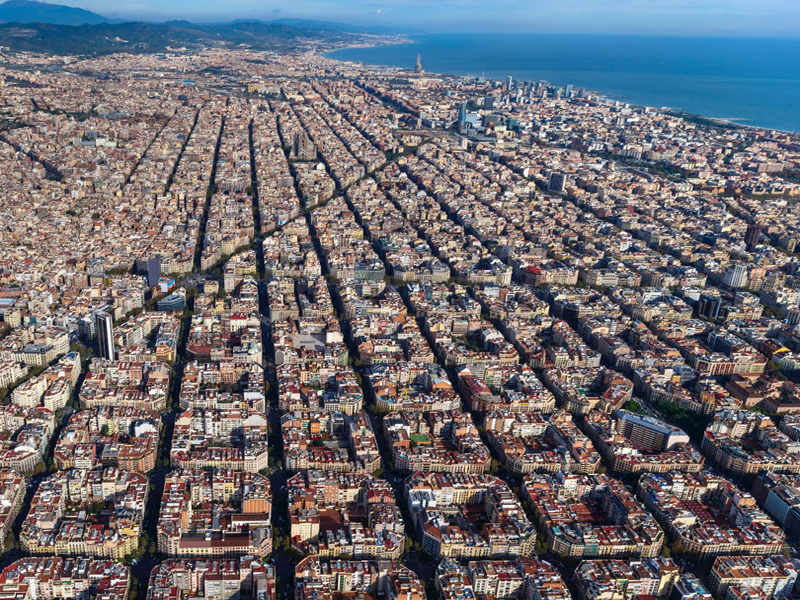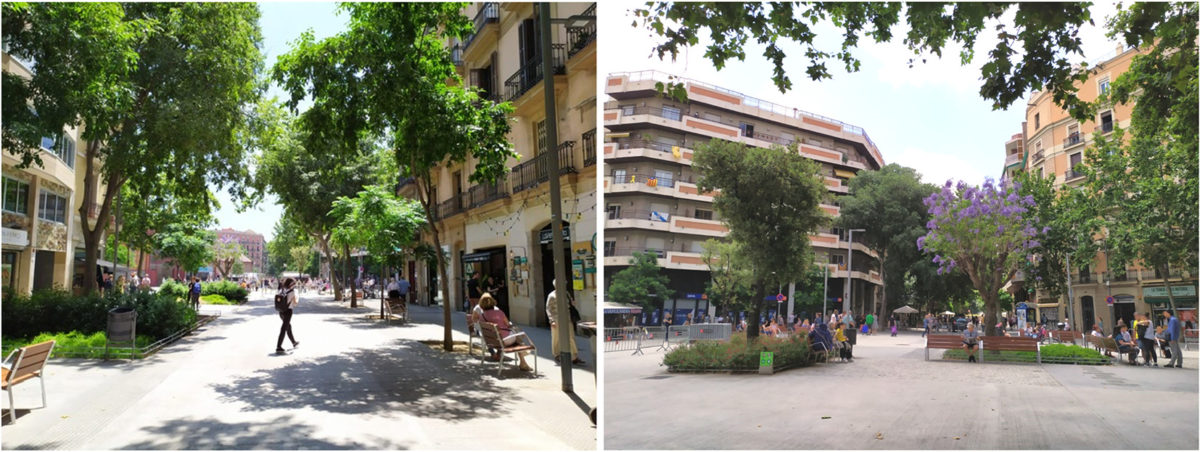 An estimated 667 premature deaths each year could be prevented in Barcelona if the proposed “Superblocks” project were fully implanted, according to estimates from an international research team that included researcher Haneen Khreis from the Texas A&M Transportation Institute (TTI). This result would be achieved mainly as a result of decreased air pollution (NO2), but reductions in traffic noise and mitigation of the heat island effect would also be contributing factors.
An estimated 667 premature deaths each year could be prevented in Barcelona if the proposed “Superblocks” project were fully implanted, according to estimates from an international research team that included researcher Haneen Khreis from the Texas A&M Transportation Institute (TTI). This result would be achieved mainly as a result of decreased air pollution (NO2), but reductions in traffic noise and mitigation of the heat island effect would also be contributing factors.
The study, published in the journal Environment International, was conducted by the Barcelona Institute for Global Health (ISGlobal). Researchers from the Center for Advancing Research in Transportation Emissions, Energy and Health (CARTEEH) at TTI assisted with the study.
The objective of the superblock model is to decrease air pollution, reduce traffic noise and mitigate the “heat island” effect by returning public space to citizens. The concept was conceived by BCNecologia, an agency led by Salvador Rueda, and the initial proposal was to create 503 superblocks throughout the city. To date, redevelopment projects under the umbrella of the “Superblock” project have been undertaken in six Barcelona districts: Poblenou, Sant Antoni, Horta, Gràcia, Les Corts and Sants.
The recently published study is the first to assess the health impacts of this new urban and transportation model. Using health impact study (HIA) methodology, the research team used a statistical model to quantify the potential effect of creating the 503 superblocks in Barcelona on the following five parameters: air pollution, traffic noise, physical activity, green space, and temperature. The results were then combined with the available scientific evidence on the relationship between each of these five factors and mortality using up-to-date data on exposure to each one and deaths due to natural causes in Barcelona.
The findings indicate that the original “Superblocks” project could prevent 667 premature deaths every year, increase life expectancy by almost 200 days on average per inhabitant, and generate an annual economic saving of 1.7 billion euros. The most notable health benefits would come from reductions in air pollution (preventing 291 premature deaths per year), followed by the mitigation of traffic noise (163 premature deaths) and heat island effects (117 premature deaths).
Barcelona is a city characterized by its high population density and shortage of green space. Researchers believe implantation of the “Superblocks” approach there would serve a model for cities around the world facing similar air quality challenges.
“Many American cities desperately need such a paradigm shift,” Khreis noted. “This not only increases the quality of life and livability in our neighborhoods but more importantly protects people’s health and results in substantial economic savings.”
For more information about this project, please visit: https://www.sciencedirect.com/science/article/pii/S0160412019315223
